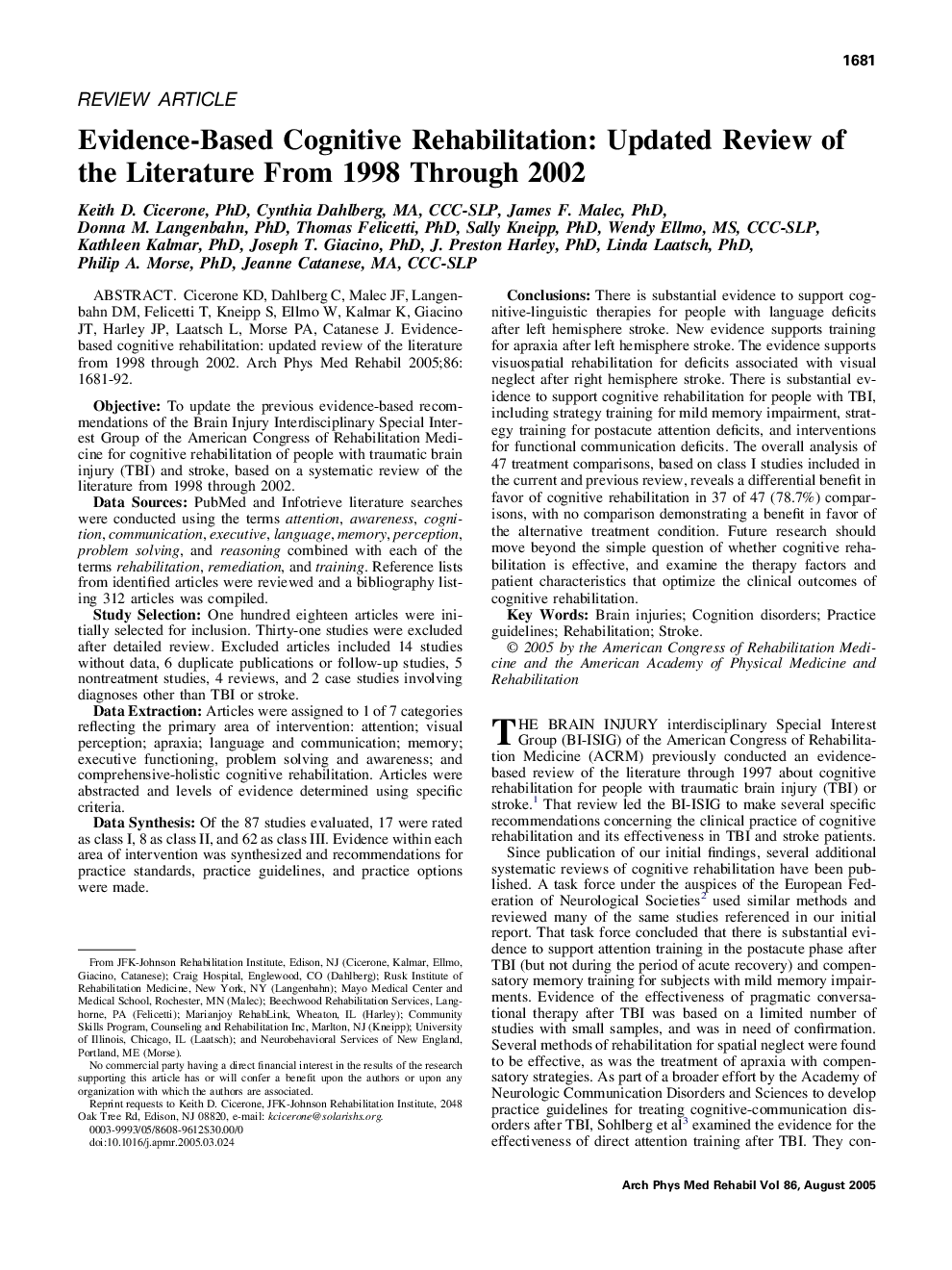| Article ID | Journal | Published Year | Pages | File Type |
|---|---|---|---|---|
| 10041255 | Archives of Physical Medicine and Rehabilitation | 2005 | 12 Pages |
Abstract
There is substantial evidence to support cognitive-linguistic therapies for people with language deficits after left hemisphere stroke. New evidence supports training for apraxia after left hemisphere stroke. The evidence supports visuospatial rehabilitation for deficits associated with visual neglect after right hemisphere stroke. There is substantial evidence to support cognitive rehabilitation for people with TBI, including strategy training for mild memory impairment, strategy training for postacute attention deficits, and interventions for functional communication deficits. The overall analysis of 47 treatment comparisons, based on class I studies included in the current and previous review, reveals a differential benefit in favor of cognitive rehabilitation in 37 of 47 (78.7%) comparisons, with no comparison demonstrating a benefit in favor of the alternative treatment condition. Future research should move beyond the simple question of whether cognitive rehabilitation is effective, and examine the therapy factors and patient characteristics that optimize the clinical outcomes of cognitive rehabilitation.
Related Topics
Health Sciences
Medicine and Dentistry
Medicine and Dentistry (General)
Authors
Keith D. PhD, Cynthia MA, CCC-SLP, James F. PhD, Donna M. PhD, Thomas PhD, Sally PhD, Wendy MS, CCC-SLP, Kathleen PhD, Joseph T. PhD, J. Preston PhD, Linda PhD, Philip A. PhD, Jeanne MA, CCC-SLP,
